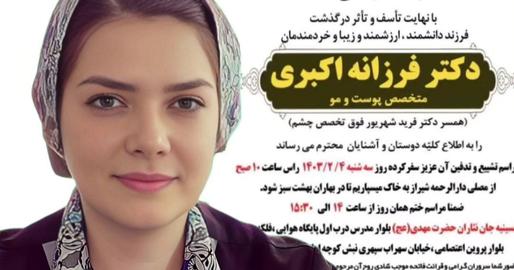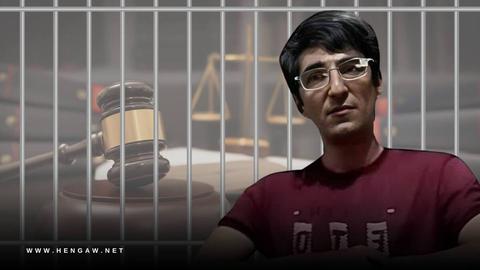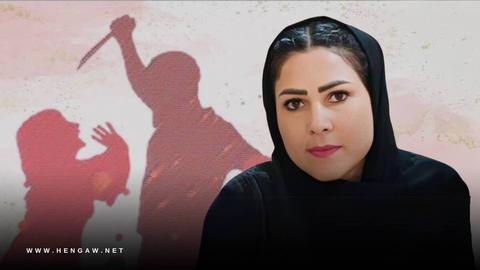Last week, Iranian President Ebrahim Raisi undertook a five-day tour of Venezuela, Nicaragua and Cuba, three Latin American countries ruled by authoritarian and anti-American governments.
Since its establishment in 1979, the Islamic Republic of Iran has seen Latin America as fertile ground for the export of its revolution. A shared anti-American ideology has been part of this compatibility – an angle made more compelling by the geographic proximity of the region to the United States.
The Iranian government has therefore, for more than 40 years, built alliances with Latin American countries and, at the same time, has spread its ideology to the region through disinformation. What began in the early 1980s as an effort to propagate the "ideas of the Revolution" by creating "cultural centers" has transformed into a giant machine, still running today, thanks to Iran's alliances with the authoritarian leaders of several Latin American countries.
Relations between Tehran and Caracas have been close ever since the rule of the late president, Hugo Chávez, and have strengthened ever since. Iran had become one of the main allies of Venezuelan leader Nicolás Maduro – especially since 2020 when there was a gasoline shortage in Venezuela and Caracas went to Tehran to buy fuel. The Islamic Republic sent five oil tankers to Venezuela to supply the demand.
In February of this year, Maduro received Iran’s foreign minister, Hosein Amir-Abdollahian, in Caracas, where both spoke of the "defence of their national interests against external pressures.”
The two oil-producing countries, members of the Organization of the Petroleum Exporting Countries (OPEC), are subject to US sanctions that weigh on their economies.
And then a year ago, in June 2022, during a visit by Maduro to Tehran, both governments signed a 20-year cooperation agreement to strengthen their alliance. "We have important cooperation projects in the fields of defence, energy, oil, gas, refineries and the petrochemical sector," Maduro said at the time. The precise scope of that agreement was never disclosed.
Now, this new meeting between Iran and Venezuela also included the "signing of contracts in oil, communications and petrochemicals," according to the Iranian ambassador to Venezuela, Hojatollah Soltani, but again the full agreement is unknown. The Iranian ambassador only specified that there are 25 different agreements. "The capacities of the two countries, Iran and Venezuela, are high, and our goal in trade exchanges is from $3 billion to $10 billion in the first phase and $20 billion in the second phase," he said, without giving further details. The Iranian president himself defined the tour as a "turning point in the deepening of ties between Iran and its Latin American allies."
Raisi’s second stop, in Nicaragua, saw him meet his Nicaraguan counterpart, Daniel Ortega, with whom he signed three agreements.
The link between Iran and Nicaragua has been strengthened by the Sandinista dictator, who proclaimed during Raisi's visit that "both countries share signs of God" given the fact that the Islamic Revolution of February 1979 and the Sandinista Revolution occurred in the same year. Raisi also affirmed the close bond between Sandinista Nicaragua and the Islamic Republic. And in February of this year Ortega, true to this fraternal revolutionary spirit, defended "Iran's right to acquire nuclear weapons."
In November 2021, during Ortega's fourth presidential inauguration, Nicaragua was in the media spotlight for receiving an Iranian delegation headed by Mohsen Rezaei, former commander of the Revolutionary Guards and Iran’s vice president of economic affairs. Rezaei is subject to an Interpol red notice and, therefore, an international arrest warrant for his alleged role in the July 1994 AMIA attack in Buenos Aires, Argentina, which left 85 dead and hundreds injured in the most significant anti-Semitic attack in modern South American history.
Raisi’s third and last stop was the Cuban capital of Havana where he was received at the Palace of the Revolution by President Miguel Díaz Canel. Both presidents signed a series of agreements that, according to releases from the Cuban government, included a memorandum of understanding to extend the communications between the two countries. Raisi and Díaz Canel also agreed to a new trade pact. Cuba and Iran have maintained a close relationship for more than 40 years, since August 1979, enhanced by the anti-American sentiment shared by both countries.
Affirming anti-Americanism was indeed an explicit goal of President Raisi’s full Latin American tour.
Pablo Jofre Real, a Chilean journalist aligned with the Iranian regime who collaborates with the main outlet for Iranian propaganda in Latin America, HispanTV, wrote in a June 12 article for TeleSurTV that "President Raisi's visit to the region is a balm and an encouragement—a breath of fresh air from the suffocating pollution of Washington. The three Latin American countries that are part of President Raisi's journey share, together with the Islamic Republic of Iran, a common experience of constant resistance to US hegemony from the moment of the birth of their respective revolutions." He added: "these three countries have joined together with the People's Republic of China and the Russian Federation in the formation of a new world order based on the self-determination of people and putting an end to totalitarian hegemonies presented under pseudo democracies. The job of our continent [Latin America] and especially of Cuba, Venezuela and Nicaragua, with Iran, must be to break the ties of US supremacy."
The implication is clear – Raisi’s tour of the three Latin American countries was about more than just trade.
Robert Evan Ellis, a professor and researcher on Latin America at the Institute of Strategic Studies of the US Army War College, had previously said in an interview for the US-based NTD news site that "the strategic implications are much greater than a simple agreement of trade. On average, these countries trade with Iran for just 2% of their total trade. I think that what is happening is the creation of a strategic alliance not only between Iran and the anti-American countries but an alliance that goes beyond that. Iran probably has more to discuss with Venezuela than a simple economic deal. Although the trade agreements that the two countries maintain allow them to evade US sanctions, Iran and Venezuela have been cooperating for some time on military drones. So those types of operations will probably be present in these conversations."
"Talking about Nicaragua, the Latin American country probably took advantage of this moment to revive what was once more modest cooperation. Nicaragua has less to contribute, but the two countries' discussion probably revolves around oil and food. Let's remember the visit of the oil minister to Nicaragua in 2022. In the case of Cuba, there is also relatively little to trade profitably, but surely the discussion will include exchanging oil for Cuban goods," Ellis added.
Asked about the ramifications of Raisi’s visit to Venezuela, Nicaragua and Cuba, and the strengthening of the alliances between the Islamic Republic and these three autocratic regimes, Ellis said that "the greatest repercussion for Latin America, regarding this rapprochement of Iran with Venezuela, Cuba and Nicaragua, is exactly the survival of authoritarian regimes in the area. Under the constant ‘signing of agreements’ new businesses can be managed between them that we do not know about and new strategies to evade sanctions."
visit the accountability section
In this section of Iran Wire, you can contact the officials and launch your campaign for various problems




























comments